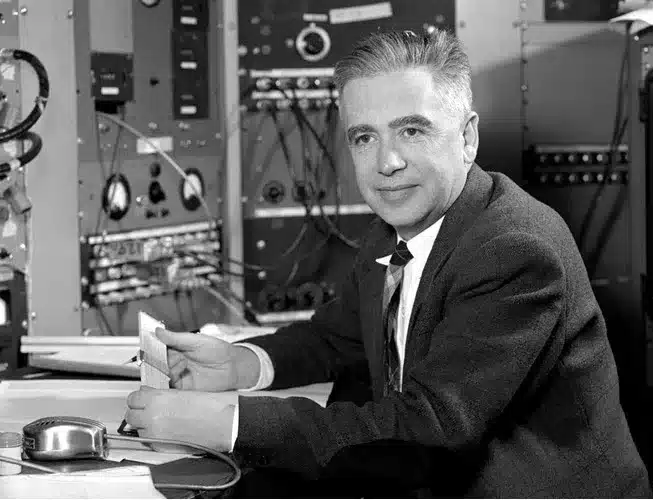Emilio Gino Segrè: Nobel Prize-Winning Physicist and Co-Discoverer of the Antiproton

Emilio Gino Segre (1 February 1905 – 22 April 1989) was an Italian-American physicist. He received the Nobel Prize in Physics in 1959.
Life and Career
He was born on 1 February 1905, in Tivoli, Kingdom of Italy. After graduating in 1922, he enrolled at the University of Rome La Sapienza as an engineering student. He studied physics under Enrico Fermi and got his Ph.D. in 1928.
He became an assistant professor of physics at the University of Rome in 1932, and two years later he worked on Fermi’s neutron experiments. He bombarded a lot of elements with neutrons, including uranium, and created elements heavier than uranium. In 1935 they discovered slow neutrons, which have properties important to the operation of nuclear reactors.
In 1936, he became director of the physics department at Palermo University. He discovered technetium a year later, the first man-made element. He was fired from the University of Palermo by the Fascist government while visiting California in 1938, so he became a research associate at the University of California, Berkeley.
In 1940, he and his colleagues discovered astatine, and later he found out that plutonium-239, like uranium-235, is fissionable. He was a group leader at Los Alamos Scientific Laboratory from 1943 to 1946. He was naturalized as a U.S. citizen in 1944, and a professor at Berkeley from 1946 to 1972. In 1955, Segre and Chamberlain discovered antiprotons using the newly developed Bevatron particle accelerator, which set the stage for many more antiparticle discoveries. In 1974, he was appointed professor of nuclear physics at the University of Rome.
There are several books he wrote, including Experimental Nuclear Physics (1953), Nuclei and Particles (1964), Enrico Fermi: Physicist (1970), and two books about the history of physics, From X-rays to Quarks: Modern Physics and Their Discoveries (1980) and From Falling Bodies to Radio Waves (1984). He died on 22 April 1989, in Lafayette, California, U.S.
Award and Legacy
He won the Nobel Prize in Physics in 1959 along with Owen Chamberlain.
Observer Voice is the one stop site for National, International news, Sports, Editor’s Choice, Art/culture contents, Quotes and much more. We also cover historical contents. Historical contents includes World History, Indian History, and what happened today. The website also covers Entertainment across the India and World.

